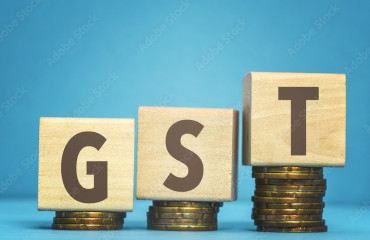
Central Board of Indirect Taxes and Customs (CBIC) Chairperson Vivek Johri said about 60,000 entities were identified based on certain risk parameters and the details were shared with field officers
Central Board of Indirect Taxes and Customs (CBIC) Chairperson Vivek Johri said about 60,000 entities were identified based on certain risk parameters and the details were shared with field officers
 Premium
PremiumAbout 11,000 entities that have taken GST registration have been found to be fake in the ongoing drive to detect those dealing in bogus tax credits, Central Board of Indirect Taxes and Customs (CBIC) Chairperson Vivek Johri said on Friday.
Johri said on the sidelines of an industry event on 'trade facilitation' organised by the Confederation of Indian Industry (CII) that about 60,000 entities were identified based on certain risk parameters and the details were shared with field officers. The idea was that both central and state authorities would do a physical verification of these entities to make sure they actually exist on the ground.
"That verification process is going on. I think so far, we have been able to complete roughly 43,000 verifications," Johri said. The CBIC Chairperson also said that among the verified cases, about 11,000 entities were found to be bogus. These entities are found to have been involved in passing on bogus input tax credits of close to ₹15,000 crores.
The numbers show the drive against fake GST registrations is aiding in weeding out entities that lead to revenue leakage. Sustained efforts based on extensive data gathering and increased reporting requirements at the level of business-to-business transactions have helped the GST authorities to scale up revenue collections in recent months. In April, Central and state governments had collected a record ₹1.87 trillion in GST revenue.
In response to a question on claims by some small businesses that they share work space or warehouses and therefore have difficulties in defending their genuineness during a physical verification, Johri said that businesses having shared work space may have a prober contract to support that. If those documents showing shared work space are in order, then they would not face any issue, the CBIC Chairperson explained.
CBIC is also looking at reducing the average release time of imported items from customs facilities to one hour by 2047, CII said in a statement, quoting Johri from his address to business representatives. CBIC is also looking at Mutual Recognition Agreements (MRAs) for enhancing effectiveness of its authorised economic operators (AEO) Programme and would also be working on self-certification of origin of goods which is a major expectation from all stakeholders, the statement said quoting the Chairperson.
